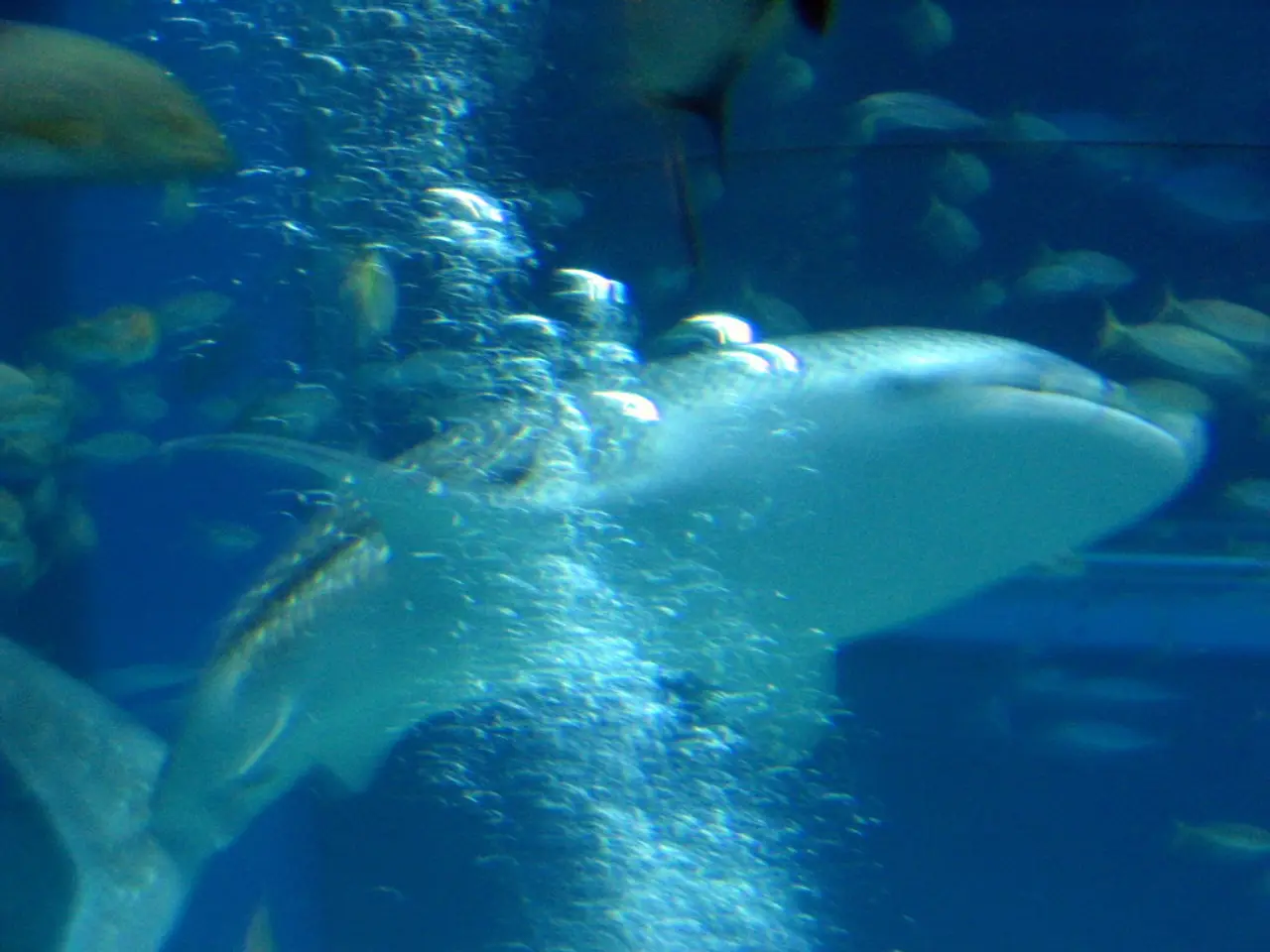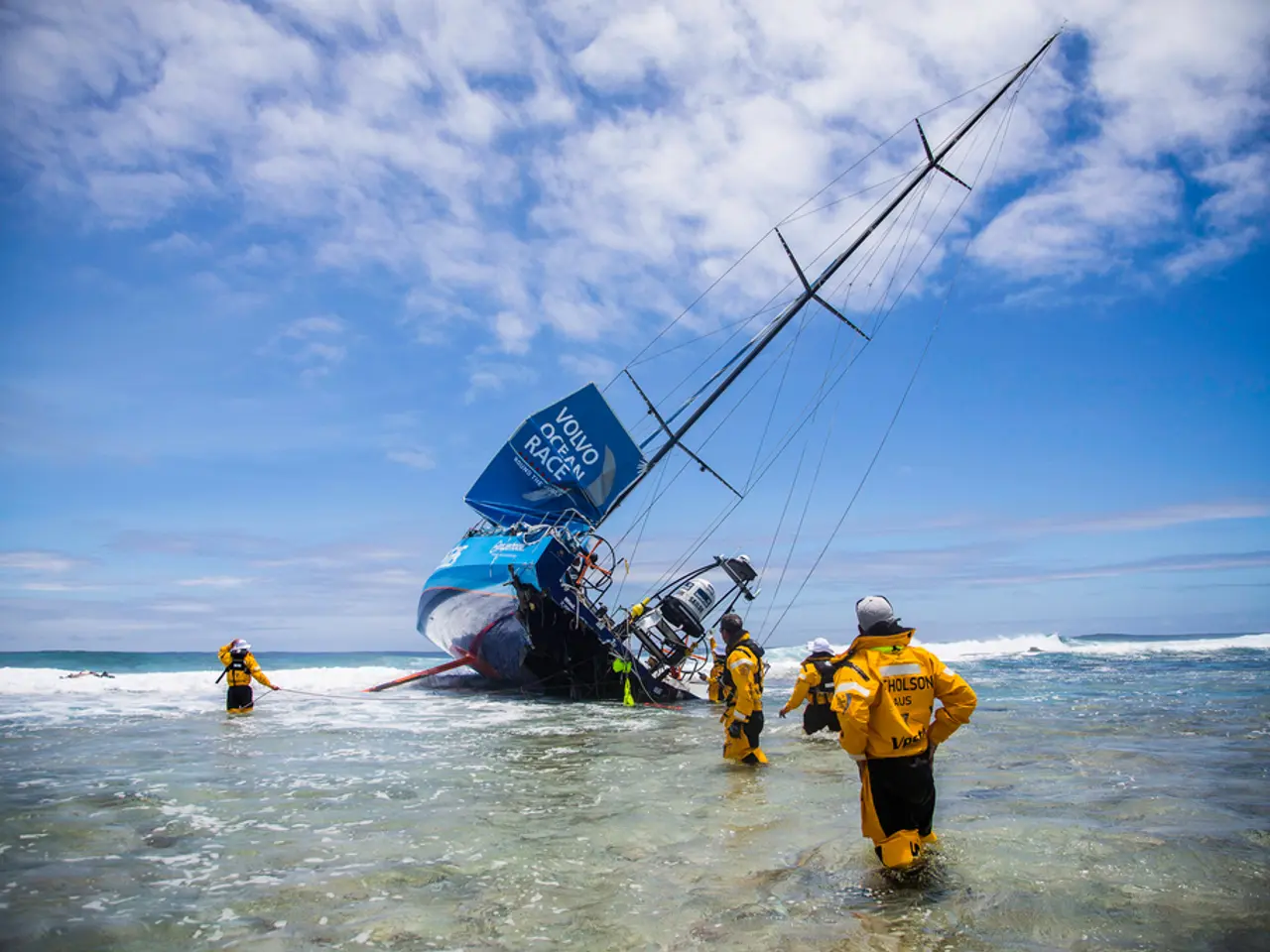Annual Shark Death Toll: Is Asking About Human Fatalities Misguided?
In a startling revelation, it's been estimated that humans are killing approximately 100 million sharks annually, a figure that equates to around 274,000 sharks daily, 11,000 per hour, or about three sharks every second [1][2][3]. This alarming statistic is primarily attributed to three factors: shark finning, bycatch, and hunting for meat, organs, and skin used in various products, despite health risks from toxins in some shark meat [1].
Despite regulatory efforts, the number of sharks dying due to human activity has not decreased and may even be slightly increasing, contributing to serious declines in shark populations worldwide [3]. This stark contrast is highlighted by the fact that fewer than 10 people worldwide are killed by sharks each year [1][4].
In 2024, there were 88 confirmed shark attacks worldwide, with only 47 being unprovoked. However, the number of bites from New Yorkers alone outnumbers those from sharks by a factor of about 140 [5]. Simple measures such as using certain devices, hooks, and fishing at certain times and places can help minimize the impact on sharks [6].
Sharks have relatively few babies, relatively infrequently, and relatively late in life, making them particularly vulnerable to overfishing. Many of the most at-risk shark species are small regional endemics, only found in a particular area [7]. The majority of the problem for sharks is not shark finning and the shark fin soup trade, but rather the shark meat trade [8].
Consumers unwittingly contribute to the problem by buying seafood, even when opting for more sustainable species. It's almost impossible for consumers to know what they are buying, as many shark species are sold under different names [9]. In the United States, the Seafood Watch app can help consumers make environmentally friendly seafood choices [10].
Greater accountability and regulations for fleets and fishing companies are important to ensure that laws are being followed and shark catch reports are accurate [11]. Modern industrial fishing gear, such as large nets and long lines with thousands of baited hooks, is catching and killing millions of sharks [12]. Worldwide, the Marine Stewardship Council's blue label is given to sustainable wild fish and seafood from certified fisheries [13].
Between 1959 and 2010, individuals were 75 times more likely to be struck by lightning than to be attacked by a shark in the coastal US [14]. Between 2009 and 2018, there were more than five times as many fatal dog bites as shark attacks [15]. Despite increasing legislation to protect shark species, an estimated 101 million sharks were killed by humans in 2019 [16].
In conclusion, the alarming rate of shark mortality due to human activities is a pressing issue that requires immediate attention. By making informed seafood choices, supporting sustainable fishing practices, and advocating for stronger regulations, we can help ensure the survival of these magnificent creatures for future generations.
References: [1] https://www.pewtrusts.org/-/media/assets/2020/02/shark-finning-report-2020.pdf [2] https://www.nature.com/articles/nature10252 [3] https://www.sciencedirect.com/science/article/pii/S0006320717302171 [4] https://www.floridamuseum.ufl.edu/shark-attacks/statistics/ [5] https://www.statista.com/statistics/1133833/shark-attacks-worldwide/ [6] https://www.oceana.org/marine-life/sharks/tips-shark-safe-fishing [7] https://www.oceana.org/marine-life/sharks/shark-species-at-risk [8] https://www.nature.com/articles/s41598-018-35266-3 [9] https://www.oceana.org/marine-life/sharks/shark-species-sold-under-different-names [10] https://www.seafoodwatch.org/ [11] https://www.oceana.org/sites/default/files/2019-07/Oceana_Report_Shark_Threat_Assessment_2019_Final.pdf [12] https://www.sciencedirect.com/science/article/pii/S0006320717302171 [13] https://www.msc.org/ [14] https://www.ncbi.nlm.nih.gov/pmc/articles/PMC2825490/ [15] https://www.cdc.gov/homeandrecreationalsafety/dog-bite-prevention/stats.html [16] https://www.pewtrusts.org/-/media/assets/2020/02/shark-finning-report-2020.pdf
- In light of the ongoing threats to shark populations, it's crucial for the scientific community to conduct comprehensive research, aiming to develop effective solutions to mitigate the impact of human activities on shark populations.
- Parallels can be drawn between the importance of protecting endangered shark species and the significance of safeguarding ecosystems in other domains, such as the environment and sports; both demand vigilance and action to preserve biodiversity for future generations.








